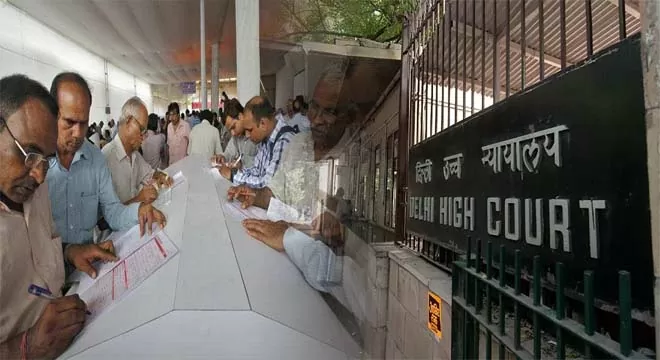The Central Board of Direct Taxes (CBDT) has amended section 119K of the IT Act to condone delay in filing of income tax returns …
The Delhi High Court dismissed a writ petition filed by an IT company seeking condonation of delay in filing income tax returns for FY20. The Central Board of Direct Taxes (CBDT) had refused to exercise the powers granted to it under section 119 of the IT Act to condone the delay. This order is being widely discussed in tax circles including income tax officials.
A major consequence of not filing returns on time is that carry forward of losses, which is usually available in the subsequent eight-year period, is denied, along with many tax benefits. A government official said, this order will reduce cases of lax attitude by taxpayers in complying with statutory provisions.
Sunil Agarwal, senior standing counsel for the income tax department and one of the lawyers representing the case, said, arguments of the taxpayers such as that the delay due to Covid was a one-time lapse or was even due to financial crisis were proved factually incorrect and found unsustainable by the high court. Many taxpayers affected due to the pandemic had found it difficult to file their I-T returns and pay their dues.
For FY20, the CBDT had extended the dehttps://www.youtube.com/watch?v=zpa6l9Cu2pUadline for filing IT returns to February 15, 2021 (for large taxpayers who are liable to tax audit) and to January 10, 2021 for others. Nevertheless, some taxpayers continued to seek condonation for delay in filing I-T returns beyond the extended due date.
Also Read: IMD warns of severe heatwave for next 4 days in THESE states
The high court found that the authorities had taken into account various facts while considering Lava International’s plea for condonation. The company had time till February 15, 2021 to file its income tax returns, yet its financial statements were signed on July 31, 2020, but it filed the income tax return only on March 30, 2021. This shows negligence.
It was noted that the company had filed income tax returns late in several cases, and the delay for the financial year 2019-20 was not unusual. In its response to the show cause notice, the company attributed the delay to financial and cash constraints. However, the financial statements for the relevant period showed a profit of Rs 24.8 crore and cash flow of Rs 12.3 crore, which does not indicate any financial difficulty.
The high court said that “the power of pardon under Section 119(2) can be exercised only to deal with exceptional circumstances which may delay statutory compliance. It cannot be used routinely.”













